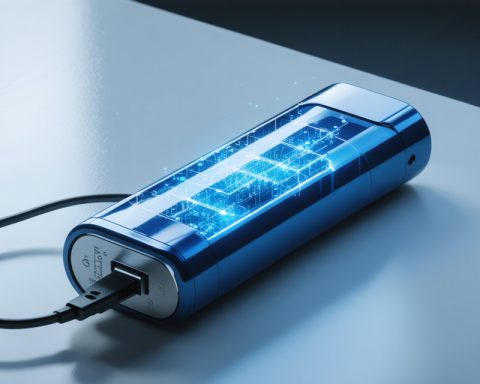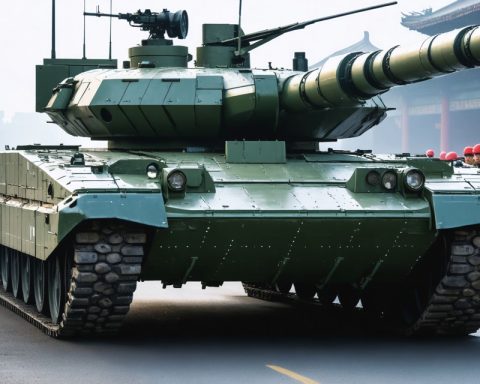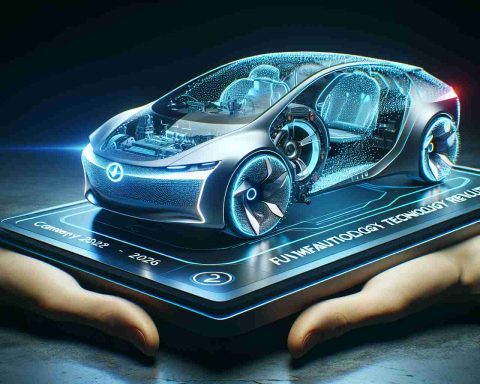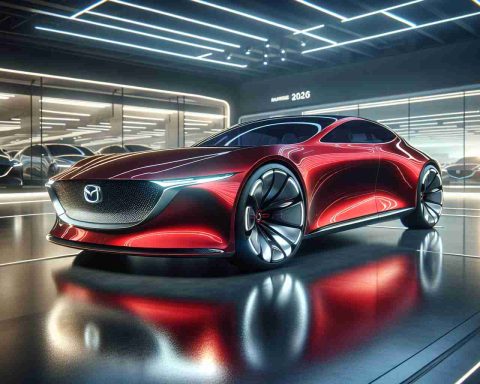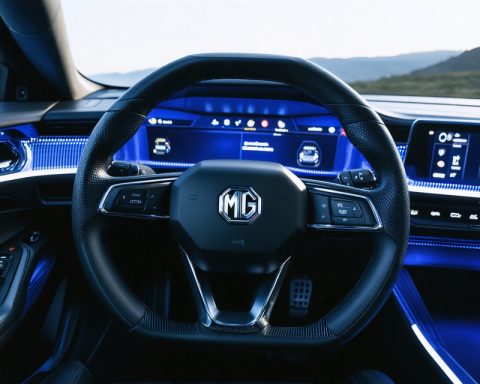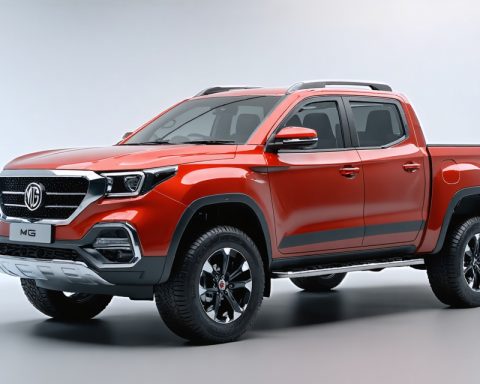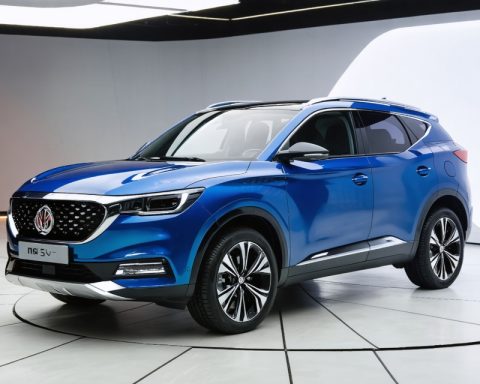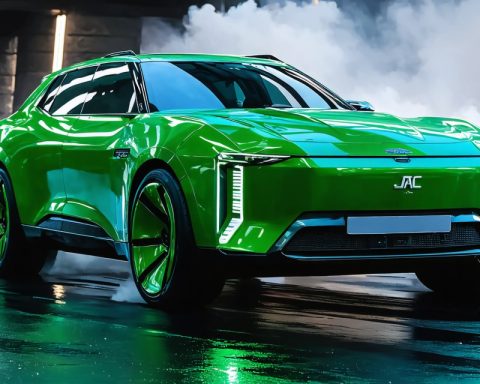- Porsche is pioneering a new approach to EV battery sustainability through a groundbreaking pilot project focused on recycling and material recovery.
- The project aims to create a circular economy, where used batteries are transformed into “black mass” for recovering essential materials like nickel and lithium.
- With around 65 tonnes of battery material already converted, Porsche emphasizes the quality of recycled elements to ensure high-performance future EV batteries.
- In its third phase, Porsche intends to integrate significant recycled content into new battery cells, testing them in upcoming models.
- This initiative aligns with upcoming EU regulations and positions Porsche as a leader in sustainable automotive innovation.
- By leveraging a closed-loop system, Porsche aims to mitigate environmental impact and reduce dependency on raw materials, advancing both sustainability and industry standards.
Porsche has embarked on an ambitious journey to transform the way we think about electric vehicle (EV) batteries, introducing a pioneering pilot project that promises to revolutionize sustainability in the automotive industry. This bold initiative, driven by the urgent need to secure essential raw materials like nickel, cobalt, manganese, and lithium, envisions an innovative circular economy where old batteries are not discarded but reborn.
Imagine a world where your car’s battery, after serving its time, does not pile up in landfills but is instead shredded and refined into “black mass,” a peculiar yet potent granulate. This black mass is then meticulously processed, extracting precious elements that pulse with potential. Porsche is at the forefront of this alchemical process, having already converted around 65 tonnes of battery material into this transformative intermediate.
But it’s not just about raw material recovery. The precision and purity of these recycled elements stand at the heart of Porsche’s mission. By ensuring that these critical materials meet their rigorous quality standards, Porsche guarantees that the EV batteries of tomorrow will not only perform with unwavering excellence but also tread lightly on the earth.
The company’s vision does not end here. Moving into the third phase of their initiative, Porsche plans to craft new battery cells that incorporate significant recycled content. These batteries will undergo real-world testing in future Porsche models, promising a tangible shift toward a more sustainable automotive future.
Porsche’s commitment resonates beyond environmental stewardship. With looming EU regulations set for 2031, requiring more recycled battery content, Porsche’s proactive approach is as much about compliance and market leadership as it is about pioneering a sustainable pathway.
This initiative underscores Porsche’s resolve to integrate sustainability into its core ethos. By using a closed-loop system, they aim not only to protect the environment but also to buffer against geopolitical uncertainties in the raw materials market—a visionary strategy that might only strengthen their innovation story.
As Porsche weaves sustainability into its future, it beckons us to reconsider: What if waste could be a springboard to innovation? What if the old could power the new? In turning remnants into resources, Porsche provides a blueprint not just for greener roads, but for transforming industry standards, redefining luxury, and reshaping our relationship with technology.
Porsche’s Revolutionary Approach to EV Batteries: A Future Reimagined
Transforming the Landscape of Electric Vehicle Sustainability
Porsche’s latest pilot project signifies a pivotal shift in how electric vehicle (EV) batteries are perceived and utilized. Their approach promises a revolutionary paradigm in sustainable automotive manufacturing. Here, we delve deeper into the hidden facets of this ambitious initiative and explore numerous related themes that align with E-E-A-T (Experience, Expertise, Authoritativeness, Trustworthiness) principles.
Automotive Circular Economy: The Next Big Leap
– Circular Economy Explained: Porsche’s innovative model emphasizes recycling old batteries by transforming them into “black mass.” This substance is essential for extracting valuable materials like nickel, cobalt, manganese, and lithium, which are critical for producing new batteries. By reusing these materials, Porsche minimizes environmental impact while maintaining high production standards.
– Reducing Dependency: The initiative reduces reliance on raw material mining, decreasing the geopolitical risk associated with volatile resource markets.
How-To Steps: Recycling EV Batteries
1. Collection: Old batteries are systematically collected, preventing potential contaminants from entering the environment.
2. Shredding: The batteries are carefully dismantled and shredded, creating black mass.
3. Extraction: The black mass undergoes a purification process to extract critical components.
4. Manufacturing: Extracted materials are reintegrated into new battery cells.
Real-World Use Cases and Forward-Thinking Strategies
– Eco-Friendly Manufacturing: Porsche implements closed-loop systems to minimize waste, leading to more sustainable production processes.
– Industry Compliance: Anticipating 2031 EU regulations, Porsche’s method ensures compliance with future mandates for recycled materials in EVs.
Market Forecasts and Industry Trends
– Growth in EV Sector: With regulations tightening globally and consumer demand for greener alternatives rising, the EV market is projected to grow significantly, as outlined by credible market analyses.
– Leading the Charge: By pioneering a recycled battery supply chain, Porsche strengthens its market position.
Pros & Cons Overview
– Pros: Environmentally sustainable, regulatory compliant, reduces material costs, innovative market leadership.
– Cons: High initial costs, technology development hurdles, potential supply chain adjustments.
Addressing Key Questions
– Why is sustainable battery recycling essential? It ensures resource efficiency, reduces environmental impact, and secures a consistent supply of raw materials.
– How does Porsche ensure battery quality with recycled materials? By adhering to rigorous quality standards in the extraction and integration processes, Porsche ensures that recycled materials match new ones in performance and durability.
Recommendations and Quick Tips for EV Enthusiasts
– Support Brands with a Green Vision: Opt for manufacturers like Porsche that prioritize sustainability.
– Stay Informed: Keep abreast of industry shifts towards eco-friendly technologies, ensuring you make informed purchasing decisions.
For more insights into sustainable automotive solutions, visit Porsche.
Porsche’s vision transforms waste into opportunity, promising not just a greener world but an evolution in luxury and technology. The initiative not only sets a new bar for sustainable practices but also challenges the industry to view waste as a resource that fuels future innovation.



